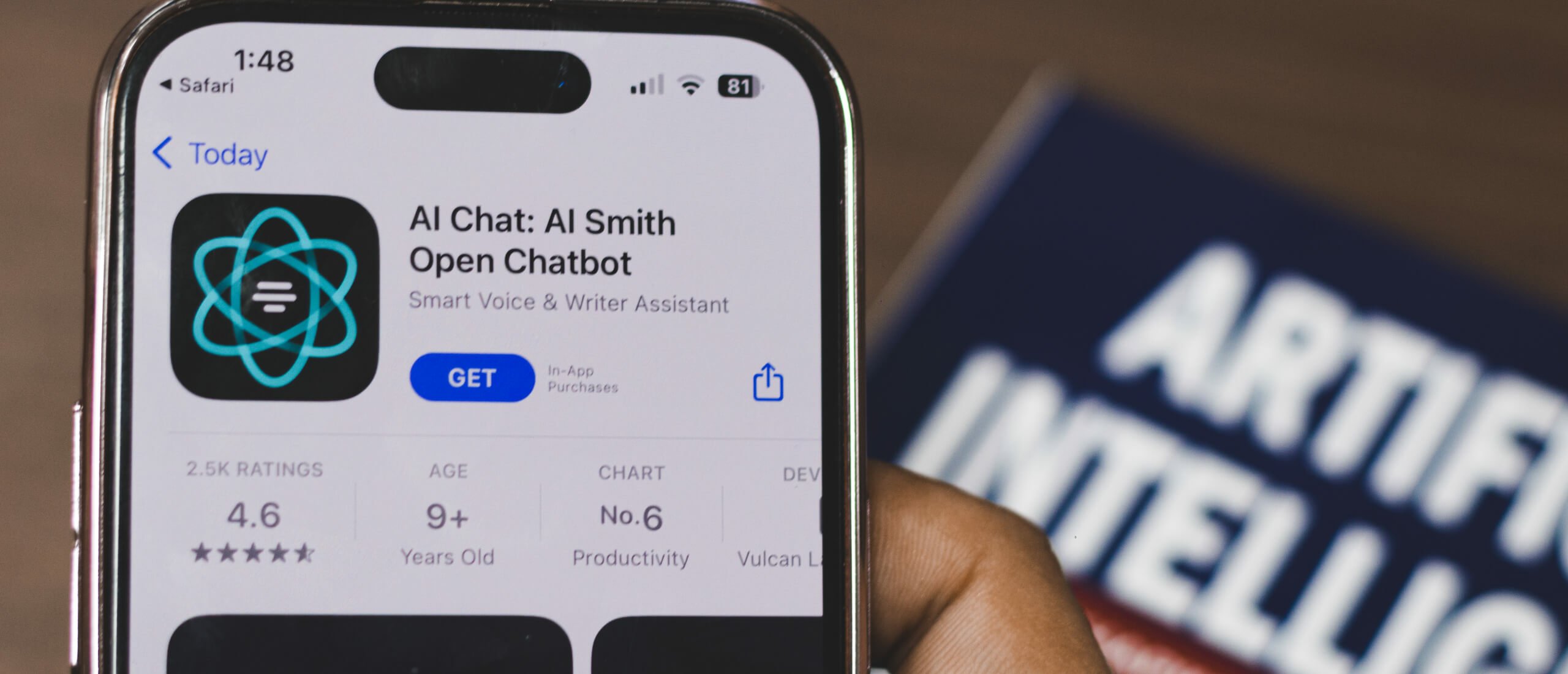Introduction
Definition of AI
Artificial Intelligence, often abbreviated as AI, refers to the simulation of human intelligence in machines that are programmed to think and learn like humans. It involves the development of computer systems that can perform tasks that would typically require human intelligence, such as speech recognition, problem-solving, decision-making, and language translation. AI technology has advanced significantly in recent years, enabling machines to analyze vast amounts of data, recognize patterns, and make predictions with a high level of accuracy. Despite these remarkable advancements, there are certain aspects of human intelligence that AI will never be able to replace.
Importance of AI
The importance of AI cannot be overstated in today's world. AI has revolutionized various industries and has become an integral part of our daily lives. It has the potential to automate tedious tasks, improve efficiency, and enhance decision-making processes. AI-powered technologies have been used in healthcare, finance, transportation, and many other sectors, making significant advancements and driving innovation. The ability of AI to analyze vast amounts of data and provide valuable insights has enabled businesses to make informed decisions and gain a competitive edge. Furthermore, AI has the potential to address complex problems and find solutions that were previously unimaginable. As AI continues to evolve and improve, its importance will only grow, shaping the future of various industries and transforming the way we live and work.
Limitations of AI
AI has made significant advancements in recent years and has proven to be capable of performing complex tasks. However, it is important to acknowledge the limitations of AI. One major limitation is AI's inability to replicate human emotions and intuition. While AI algorithms can analyze data and make rational decisions, they lack the ability to understand and interpret emotions, which often play a crucial role in decision-making. Additionally, AI is limited by its reliance on data availability and quality. Without access to sufficient and accurate data, AI algorithms may struggle to provide accurate results. Furthermore, AI is prone to biases that are present in the data it is trained on, which can lead to unfair or discriminatory outcomes. These limitations highlight the need for human involvement and oversight in areas where AI is deployed, ensuring that ethical considerations are taken into account and potential risks are mitigated.
Creativity

The human touch
The human touch is a vital aspect of many industries and professions that AI will never be able to fully replace. Whether it's the empathy and compassion of a healthcare professional, the creativity and intuition of an artist, or the critical thinking and problem-solving skills of a business leader, there are certain qualities that only humans possess. These qualities allow us to connect on a deeper level, understand complex emotions, and make decisions based on intuition and experience. While AI can assist and enhance our abilities, it can never replicate the unique human touch that brings warmth, understanding, and a personal connection to any interaction or experience.
Emotional intelligence
Emotional intelligence is a critical aspect of human interaction that sets us apart from artificial intelligence. While AI may excel in tasks that require logical reasoning and data analysis, it lacks the ability to understand and respond to human emotions. Emotional intelligence allows us to empathize, connect, and communicate effectively with others. It enables us to navigate complex social situations, adapt to different environments, and build meaningful relationships. This invaluable skill cannot be replicated by AI, making it an essential quality that AI will never replace.
Intuition
Intuition is a uniquely human ability that sets us apart from artificial intelligence. It is the gut feeling, the instinctive knowing that guides our decision-making process. While AI can process vast amounts of data and make predictions based on patterns, it lacks the intuitive understanding that humans possess. Intuition allows us to make leaps of logic and consider factors that may not be immediately apparent. It enables us to trust our instincts and make decisions based on more than just logical analysis. AI may be able to mimic some aspects of intuition, but it will never truly replicate the human capacity for intuitive thinking.
Complex problem-solving
Contextual understanding
Contextual understanding is a crucial aspect of human intelligence that sets us apart from artificial intelligence. While AI has made significant advancements in areas such as data analysis and pattern recognition, it still struggles to grasp the nuanced meanings and subtle nuances of language and context. Humans have the ability to understand and interpret information based on the surrounding circumstances, cultural references, and personal experiences. This contextual understanding allows us to make informed decisions, empathize with others, and navigate complex social interactions. It is this unique capability that AI will never be able to fully replicate, making it an essential skill that will continue to be valued in various fields and professions.
Critical thinking
Critical thinking is a crucial skill that sets humans apart from artificial intelligence. While AI systems are capable of analyzing vast amounts of data and making predictions, they lack the ability to think critically and make reasoned judgments. Critical thinking involves evaluating information, considering different perspectives, and applying logical reasoning to solve problems. It requires creativity, intuition, and the ability to weigh multiple factors before making a decision. These cognitive abilities are deeply rooted in human experience and cannot be replicated by AI. Therefore, critical thinking will always remain a uniquely human trait that AI can never replace.
Adaptability
Adaptability is a quality that sets humans apart from machines. While AI has made significant advancements in various domains, it still lacks the ability to adapt to new situations and environments like humans do. Humans have the capacity to learn, unlearn, and relearn, allowing them to navigate through complex and ever-changing circumstances. This adaptability enables humans to find creative solutions, think critically, and make informed decisions. It is this unique characteristic that ensures that AI will never fully replace the ingenuity and adaptability of the human mind.
Ethics and morality

Value judgments
Value judgments play a crucial role in decision-making and cannot be replaced by AI. While AI can analyze data and provide recommendations based on objective criteria, it lacks the ability to consider subjective factors and personal values. Value judgments involve weighing different options and making choices based on individual beliefs, ethics, and principles. These judgments require empathy, intuition, and an understanding of complex human emotions, which AI is incapable of replicating. Therefore, the human element of value judgments will always be essential in various domains, including ethics, art, and social interactions.
Moral reasoning
Moral reasoning plays a crucial role in human decision-making and is an area where AI will never be able to fully replace humans. While AI systems can process vast amounts of data and make logical calculations, they lack the ability to understand and navigate complex moral dilemmas. Moral reasoning involves considering the ethical implications and consequences of actions, taking into account various perspectives and values. It requires empathy, compassion, and the ability to weigh conflicting interests. These are qualities that are deeply rooted in human nature and cannot be replicated by machines. Therefore, the role of moral reasoning will continue to be a uniquely human domain, essential for making ethical choices and shaping a just society.
Empathy
Empathy is a uniquely human trait that sets us apart from artificial intelligence. While AI can process vast amounts of data and perform complex tasks, it lacks the ability to truly understand and relate to human emotions. Empathy allows us to connect with others on a deep level, to feel their joys and sorrows, and to provide support and comfort. It enables us to put ourselves in someone else's shoes and offer genuine compassion and understanding. This human quality cannot be replicated by AI, making empathy an essential aspect of our lives that AI will never be able to replace.
Human connection
Empathy and compassion
Empathy and compassion are two essential human qualities that AI will never be able to fully replace. These qualities involve understanding and connecting with others on an emotional level, which requires a deep level of human experience and intuition. While AI can analyze data and make predictions, it lacks the ability to truly empathize with others and show genuine compassion. Empathy and compassion are what make us uniquely human, and they play a crucial role in various aspects of our lives, such as healthcare, counseling, and social interactions. No matter how advanced AI becomes, it will always fall short in replicating the genuine empathy and compassion that humans are capable of.
Building trust
Building trust is crucial in the age of AI. While AI has the potential to revolutionize various industries, there will always be a need for human trust. Trust is built through transparency, accountability, and ethical practices. It is important to ensure that AI systems are unbiased, secure, and reliable. By prioritizing trust-building measures, we can create a harmonious relationship between AI and humans, where AI complements human capabilities rather than replacing them.
Non-verbal communication
Non-verbal communication plays a crucial role in human interaction and is something that AI will never be able to fully replace. While AI may excel at processing and analyzing verbal communication, it lacks the ability to understand and interpret non-verbal cues such as facial expressions, body language, and tone of voice. These non-verbal cues often convey emotions, intentions, and nuances that cannot be accurately captured or replicated by AI. Human communication is complex and relies heavily on non-verbal communication to convey meaning and build connections. Therefore, the importance of non-verbal communication in various aspects of life, including personal relationships, professional settings, and cultural interactions, ensures that AI will always fall short in completely replacing this essential aspect of human interaction.
Innovation and entrepreneurship

Risk-taking
In the realm of risk-taking, AI will never be able to replicate the human instinct for calculated decision-making. While AI algorithms can analyze vast amounts of data and make predictions based on patterns, they lack the ability to factor in intangible elements such as emotions, intuition, and personal experiences. These qualities play a crucial role in assessing risks and making informed decisions, especially in uncertain and complex situations. The human capacity to take calculated risks, weighing potential rewards against potential losses, is a unique skill that sets us apart from AI and ensures our adaptability and resilience in various domains.
Out-of-the-box thinking
Out-of-the-box thinking is a crucial skill that sets humans apart from AI. While AI can process and analyze vast amounts of data, it lacks the ability to think creatively and come up with innovative solutions to complex problems. Out-of-the-box thinking allows us to approach challenges from different perspectives, consider unconventional ideas, and find unique approaches to problem-solving. This skill enables us to think beyond the limitations of pre-programmed algorithms and explore new possibilities. As AI continues to advance, it is important to nurture and cultivate our out-of-the-box thinking abilities, as they will always be valuable in areas that require creativity and innovation.
Leadership
Leadership plays a crucial role in any organization, and it is one aspect that AI will never be able to fully replace. While AI can assist in decision-making and provide data-driven insights, it lacks the human qualities that make a great leader. Effective leadership requires empathy, intuition, and the ability to understand and motivate individuals. These qualities are deeply rooted in human emotions and experiences, which cannot be replicated by AI. Additionally, leaders are responsible for setting a vision, inspiring and guiding their teams, and adapting to changing circumstances. These complex tasks require a level of judgment and adaptability that AI is currently incapable of. Therefore, leadership will continue to be a fundamental aspect of organizations, even in an increasingly AI-driven world.





